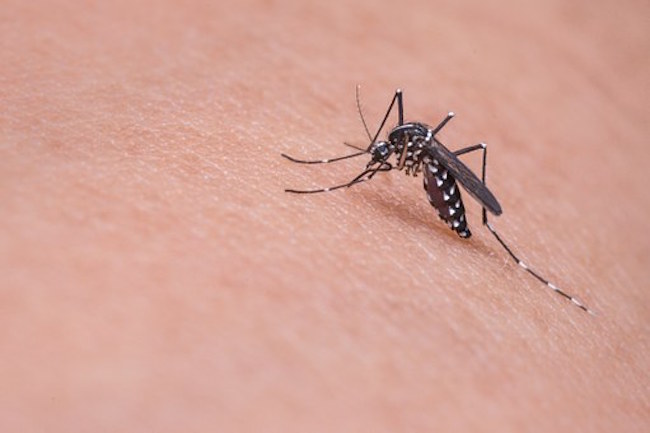5 Plants that can keep mosquitoes away from your home by: Arsenio Toledo for Natural News
Summer is just around the corner, and the warm weather means the mosquitoes are about to come out as well. It is difficult to keep these pests away from your home, especially without the use of chemicals.
Fortunately, certain plants have qualities that mosquitoes find very repellant. Here are five of those plants. (h/t to OldWorldGardenFarms.com)
Citronella
Citronella has long been associated with its ability to keep mosquitoes away. The citronella plant produces an oil that is an effective insect repellant.
While citronella is a very low-maintenance plant, it is susceptible to the cold. If you live anywhere outside of growing zones nine through 11, outdoor citronella plants will find it difficult to survive the winter. Consider planting citronella in pots and other moveable containers, making the mosquito-repelling plant easy to transport once the winter comes.
Lemon balm
Lemon balm is a perennial herb that is easy to grow and is a great plant to keep around in your garden for its ability to repel mosquitoes. The leaves of the lemon balm contain large amounts of the compound known as citronellal, which is what deters mosquitoes from coming any closer.
You can even use the lemon balm’s leaves to make a mosquito repellant spray. Simply strip several leaves off, blend and soak them and place them in your spray bottle of choice. Alternatively, you can use the leaves directly by crushing several in your hands and rubbing them on your exposed limbs.
As a bonus, lemon balm is also known to repel other annoying bugs like ants and flies. It also contains chemicals that are in bee pheromones, which attracts them. Bees find the nectar in lemon balm flowers irresistible. (Related: Anti-mosquito diets: 3 Foods to eat to keep mosquitoes at bay.)
Marigolds
Marigolds are easy to grow annual flowers that are popular as border plants. Marigolds emit a very pungent smell that deters mosquitoes.
Marigolds are known as great companion plants for your vegetable garden. As border plants, not only will they keep away mosquitoes but they can also deter aphids, beetles, whiteflies, hornworms and many other pests. Marigolds can also repel larger plant-eaters like deer and rabbits.
Oregano
Oregano is a culinary herb and a popular ingredient for adding flavor to dishes. It is a compact, fragrant and beautiful plant that will fit well with your home garden. Mosquitoes tend to fly away from oregano plants due to their distinct aroma, and the oil that it produces also acts as a natural repellant.
Oregano oil is a powerful essential oil that contains two distinct chemicals – thymol and carvacrol – with properties that can repel mosquitoes. Oregano oil may even be effective against mosquitoes that carry malaria. You can take some oregano leaves and turn them into a natural anti-mosquito spray. Alternatively, you can just rub the leaves on your arms and legs.
Oregano oil is also a known natural remedy for certain illnesses, such as spasms and diabetes.
Nasturtiums
Nasturtiums are beautiful annual flowers that bloom in a beautiful array of yellow, red and orange colors. They are very economical and easy to grow and are great border plants to mark out the edges of your garden.
These plants are fantastic for pest control. They produce a unique chemical marker that can naturally repel mosquitoes and other pests like aphids, cabbage looper, leafhoppers, leafminers, slugs, squash bugs and whiteflies.
Not only are nasturtiums good for pest control, but they also fend off invasive weeds from creeping up into your garden. Nasturtium’s dazzling flowers also attract pollinators like bees, butterflies and hummingbirds.
Having several of these plants strategically placed around your home and garden can help you repel mosquitoes. You will also be helping your garden by keeping other pests away and attracting pollinators.
Learn more about the many uses of the plants you can put in your garden by reading the latest articles at HomeGardeningNews.com.




